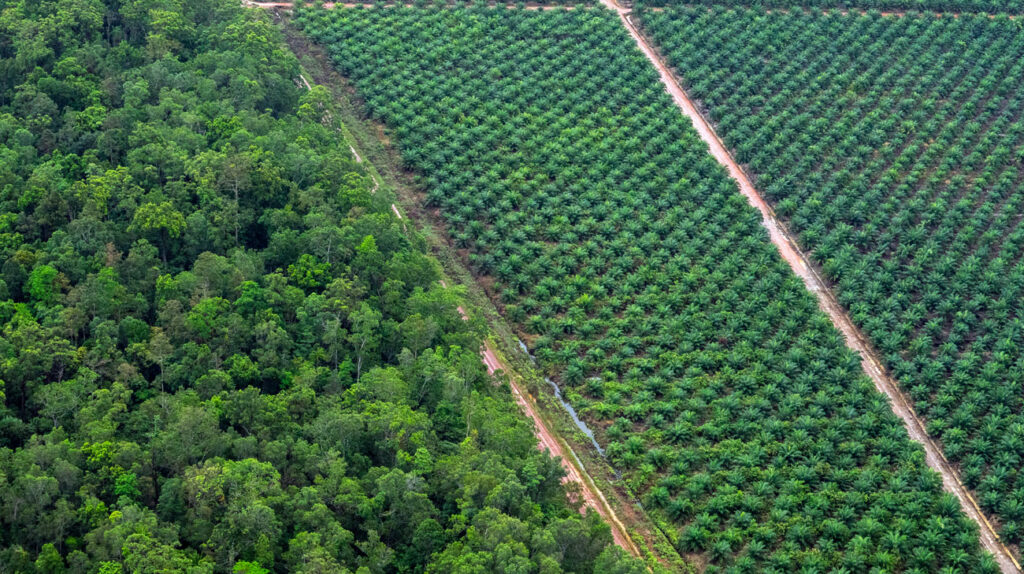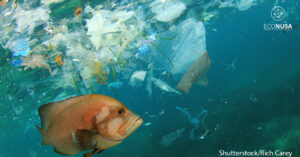
Corruption Eradication Commission (KPK) jointly with the Provincial Government of West Papua held a coordination meeting on palm oil plantation license review. The evaluation is the follow-up of coordination and supervisory of palm oil plantation sector in West Papua that has been done since February 2021.
“On the coordination meeting today, we focus on the result of palm oil plantation license evaluation of the category three, namely the corporations that have acquired the right to cultivate (HGU) and planted palm oil, but failed to meet the requirement or obligation stipulated by the government and caused the state loss,” said West Papua Secretary, Nataniel Mandacan, upon reading the West Papua Governor’s speech on Tuesday, 12 July 2022.
Mandacan addressed some crucial points related to the coordination meeting here. The government income suffers from loss due to the less amount of tax paid by the concessions with Plantation Business Permit (IUP). License evaluation implementation here aims to improve license management among other by data synchronization at various government levels with palm oil plantation database and optimization of oversight and development by the government.
Read Also: Following Palm Oil License Revocation in West Papua, What’s Next?
“It is expected the oversight and development by the government could run more effectively so the palm oil plantation could be more orderly and compliant with the regulation,” he said.
The implementation of palm oil license evaluation here, as to Mandacan, went along with the central government policy. President Joko Widodo through Minister of Environment and Forestry on 6 January 2022 revoked around 3.1 million hectares of forest area permit of which more than half of it was located in Tanah Papua. As from 24 palm oil companies in West Papua, 17 was revoked. The central government through the Coordinating Ministry for Maritime Affairs and Investment has called the Development Finance Comptroller (BPKP) to audit the governance of palm oil industry and its derivation.
According to Mandacan, along with the special autonomy and its derivative regulations spirit, development in West Papua should benefit the indigenous people. The management priority of the former concession areas could be managed by the indigenous people in sustainable manner based on the local potential which is fully supported by the government.
Read Also: Sago Forest Under Palm Oil Threat
In the coordination meeting on 21 February 2021, West Papua government has presented the evaluation result of palm oil company licenses to the regents and relevant institutions for the follow-ups. From the evaluation, the provincial and some regional governments revoked the 351,342.93 hectares of concession licenses and revised the licenses of 16 companies.
“We recommend to revoke the company license since they explicitly declared not to continue the licensing process. Besides, there is also IUPs that have not cleared and planted any palm oil at all,” said Yakob S. Fonataba, West Papua Province’s Head of Food, Horticulture, and Plantation Office.
The license revocation here has made 5 companies to file lawsuits to the Administrative Court. “We appreciate the legal process. However, on the other hand, we must enforce the regulation including the businessperson’s compliance. Let alone when the IUPs here failed to comply its obligation to the state and even jeopardized the Papuan forests, so we should discipline them,” said Dian Patria, the KPK’s Head of Coordination and Supervisory Task Force Region V.
Read Also: Locals Deceived by Questionable Palm Oil License
Related to tax compliance, the Head of Tax Office of Maluku and Papua, Hery Kuswanto, pledged to collect actively taxes from the company. “The tax office will make every best effort to collect tax. Therefore, it requires synergy and support across from central and regional institutions. We will make a tax data reconciliation with the relevant office,” said Hery.
In addition to incompliance with tax payment, the meeting also underlined the contribution provided by palm oil sector in the development of West Papua due to the absence of cooking oil manufacture industry in West Papua. “We hope there will be measure to speed up the construction of cooking oil plant in Manokwari. The scarcity of cooking oil occurs in Manokwari which is deemed the palm oil producer,” said Hermus Indou, the Manokwari Regent.
Cindy Simangunsong, EcoNusa’s Policy and Advocacy Manager, who has so far done the advocacy of palm oil governance in West Papua, considered this as one of the strategic options for the regional government. “Building cooking oil industry is one of options to boost up contribution from the sector for the community. Let alone when we see the spirit of Special Autonomy Law, natural resource sector should give direct contribution to the community particularly the native Papuans,” said Cindy.
Read Also: Samb Kai Village School, Building Local Resilience in Merauke
The coordination meeting concluded that across sectors synergy is deemed the key for palm oil IUPs governance in West Papua. The antigraft body will keep overseeing the process here. “The existence of KPK is to ensure every party is on the shared objective during the disciplinary measure here. From the start, the palm oil IUPs betterment in West Papua was intended to improve the governance in a bid to prevent corruption, state loss, and to defend forest areas as West Papua declared to be the conservation province. This needs active backups from all parties,” said Dian.









